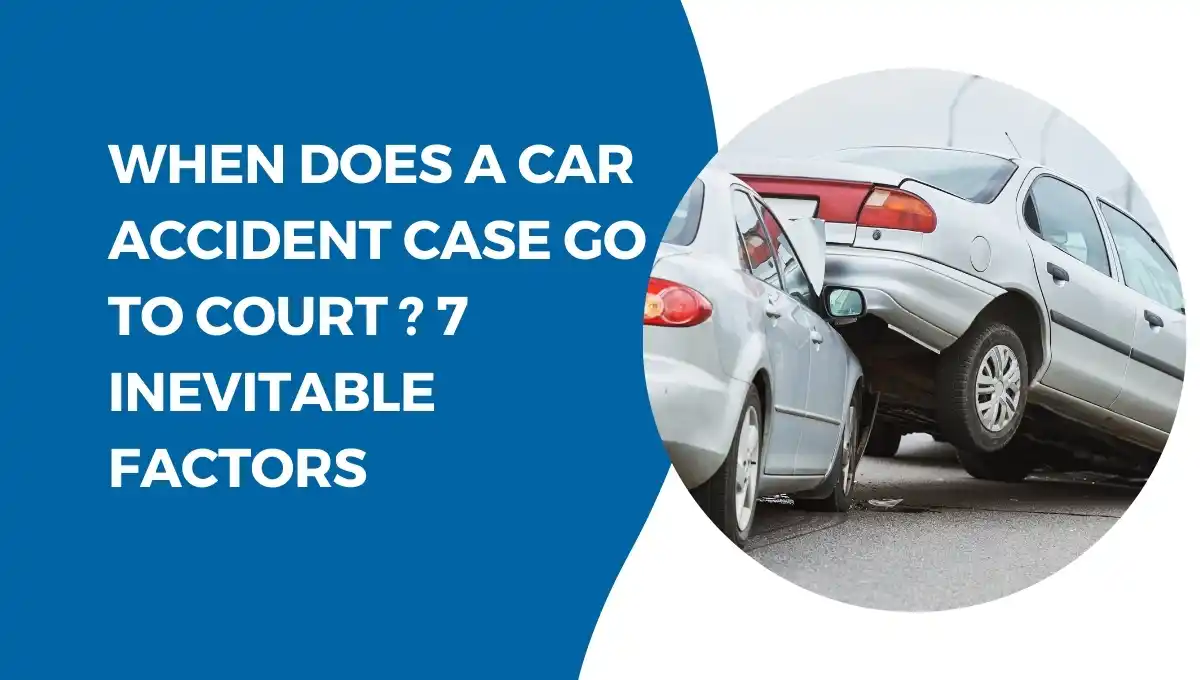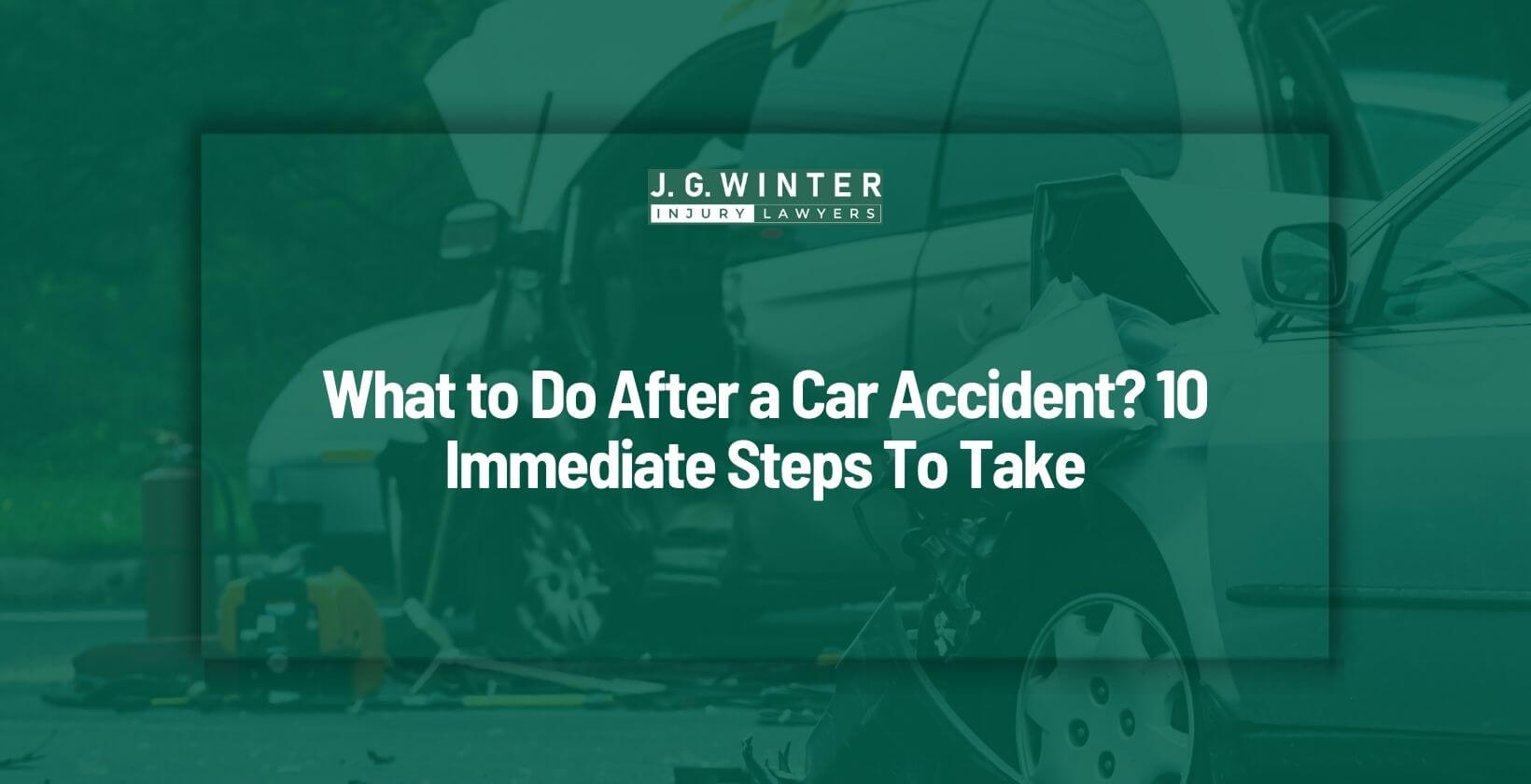Are you having trouble obtaining compensation after a car accident? And still deciding whether to take your case to court? Dealing with injuries and property damage is stressful, and the added financial strain and complex legal proceedings can be overwhelming. This blog explains the settlement process and outlines the stages before a case might proceed to court. We’ll also explore the critical factors that could push your case to litigation, helping you make an informed decision.
What is settlement?
A settlement in a car accident case is a mutually agreed-upon amount that the at-fault party pays the injured party as compensation. In return, the injured party agrees to drop any legal claims against the at-fault party.
Most car accident cases are settled before going to court. This is because court cases can be costly for insurance companies and everyone involved. So, making out-of-court settlements is an affordable option. However, there are certain cases where going to court is inevitable.
When does a car accident case go to court?
When negotiation alone doesn’t achieve the desired settlement, you can seek compensation through court. You negotiate for car accident compensation up to the discovery phase. If you don’t reach a settlement by then, the case will go to court.
Following are some 7 Inevitable factors that can cause failed negotiation and further lead your case to court:
Severe injuries and damages
Severe injuries such as brain injuries and catastrophic spine injuries can have extensive medical bills. The profit-intended insurance companies try to avoid paying for these serious injuries. Taking your case to court can help you receive just compensation.

Disputes over liabilities
Some cases involve complicated legal points or factual disputes. This might include technical details about how an incident occurred or interpretations of law that are unclear. In such cases, neither side can agree on liability and needs a court to decide based on evidence. Our Sacramento auto accident lawyer specializes in these complex legal points, ensuring your side of the story is professionally presented before a judge or jury.
Unsatisfactory settlement offers
The insurance company usually offers compensation, which is inadequate to cover your damages. You do not have to accept the offer immediately. You can take the case to the court for the possible satisfactory damage control.
Disagreement over damages
Disagreements over damages in your accident case can lead to court if you and the other party can’t agree on the compensation amount. Complex damages, like emotional distress or future medical costs, are hard to quantify and often lead to disputes. There can also be conflicts, such as medical reports or expert testimony, over the evidence. When these issues arise, going to court is necessary for a judge or jury to decide the right amount of compensation.
Insurance policy limitation
Your car accident compensation depends on the insurance policy. If the damages exceed the insurance policy limit, the remaining amount becomes the personal liability of the at-fault party. You can take your case to court to seek additional compensation beyond the insurance coverage, ensuring you receive the full amount for your losses.
Deadline to claim
The statute of limitation to file a claim for your accident sets a limitation. You can generally file the claim and lawsuit two years after the accident. It is even shorter, i.e., six months, if government entities are involved. If the negotiation process is about to exceed these timelines, you can file a lawsuit and take your case to court to get lawful recovery.
Choice of plaintiff
At the end of the day, it is your decision whether to accept the settlement offer or take your case to court. However, taking your case to court can sometimes be risky. You may think you can get more compensation through the court’s verdict, but it can backfire without proper evidence. Get advice from your lawyer in every litigation process.
Discuss your case with a car accident lawyer

Seeking compensation through court may strengthen your legal protection and provide a comprehensive resolution and enforceable judgment. Nevertheless, it can also be complex and stressful. Lengthy and time-consuming processes with high costs and low privacy can make you emotionally distressed. It is important to take advice from an experienced lawyer. It will help you simplify intricate legal proceedings of a car accident case and make optimal decisions.
At J.G. Winter Law Firm, we fight tirelessly to ensure the best results for you. We have compassionate and experienced lawyers who specialize in car accident cases. What’s more? You do not have to worry about the payments. You pay us only after your case settlement with some percentage of it.
Have you been in a car accident in California? Contact J.G. Winter Law now for a free consultation.
When does a car accident case go to court?: FAQs
What happens in a car accident lawsuit?
A car accident lawsuit starts when the plaintiff files a complaint in court against the defendant. Then, there’s a “discovery phase” where both sides ask questions, give depositions, and exchange documents. The case goes to court if they can’t settle even after all this information is shared. A jury listens to both sides, decides the outcome, and the victim can then collect whatever compensation the jury awards them.
How long does a car accident lawsuit take to get a settlement?
A car accident lawsuit can take some months or years to settle. This timeline fluctuation is due to factors such as the complexity of the accident, inadequate evidence, etc.
Can I file a car accident lawsuit without an attorney?
Yes, you can file a car accident lawsuit for minor accidents without an attorney. However, getting a lawyer’s advice is wise for your legal protection. You would need an attorney if your case goes to court or the settlement process is complex.
What is the statute of limitations?
The statute of limitation is the timeframe for a victim to file charges against the defendant. For car accidents, it is generally 2 years after the accident. For minors, this timeline halts till they are 18.


